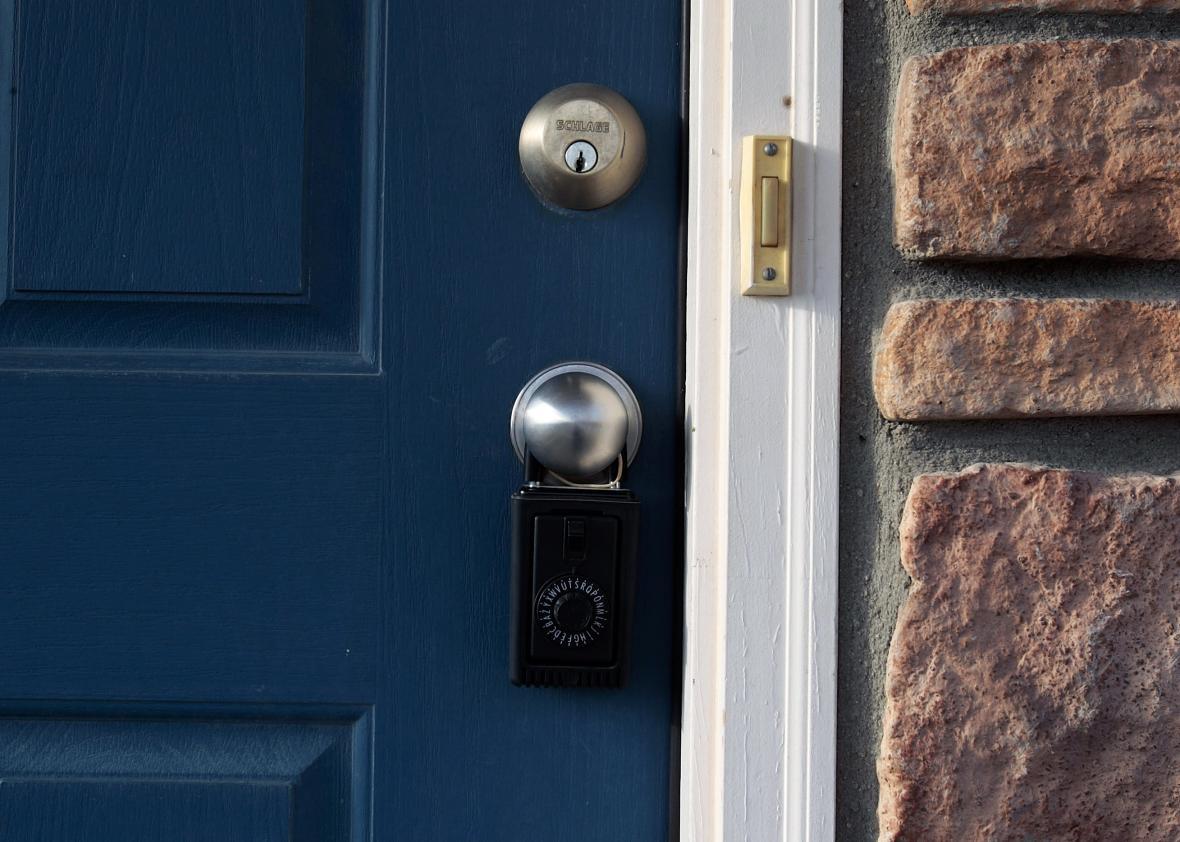Otto, a much-hyped smart lock startup, is suspending operations a mere month before it was supposed to ship its first lock.
CEO Sam Jadallah, a Microsoft alumnus, explained in a Medium post this past Wednesday that an unnamed company that was supposed to acquire the startup abruptly pulled out of the deal. Otto’s initial agreement with the larger company restricted its ability to court other investors and funding sources, so all of its eggs were in one basket, he wrote. Without the acquisition deal, Otto now has no capital. According to a discussion that Jadallah had with TechCrunch over the weekend, the already-manufactured locks are now just sitting in a warehouse.
When Otto first introduced the product in August, tech bloggers praised the smart lock’s small size—comparable to that of a manual lock—and its soft, smooth design that seemed to borrow from Apple’s signature minimalism. Early ads demonstrated how the device would unlock a door with a touch after sensing that its owner’s phone was in range. Users could also rotate the lock to enter a combination.
The prototype set itself apart from its competition in that it wasn’t, as the Verge put it, “a big, ugly hunk of metal.” Yet, the compactness and aesthetic elegance also came with a $699 price tag, almost three times higher than that of other smart locks. During its initial publicity wave, Otto was explicitly marketing its product to wealthy, tech-savvy homeowners.
Price notwithstanding, Otto seemed to have everything going for it. It managed to raise more than $37 million from big tech investors such as Greylock Partners, a venture capital firm that includes the likes of LinkedIn co-founder Reid Hoffman, and Fortune Brands. As Jadallah’s Medium post details, the startup had an attention-grabbing summer debut, rave beta reviews, generous offers from eager investors, and an industrious team that looks from pictures to have consisted of about three dozen people.
So what prompted this sudden fall? Jadallah shifts most, if not all, of the blame for the startup’s collapse on the mystery company pushing the breaks on the acquisition, a turn of events that he describes as “the bullet we couldn’t deflect.” But he offers little insight into why the company got cold feet, simply noting, “The reason is still not understood.”
The one major criticism that Otto’s lock roundly weathered was its high price, though Jadallah asserted to TechCrunch that this could not possibly have been the reason for the failed deal. He said, “[The would-be buyers] knew about the price before the first meeting, and they are very smart people.” He even claims that they were confident the product could go for an even higher price in some markets.
So was it a flaw in the product? A savvy competitor? Leadership failures? (That’s what Ben Havilland, who claims he was laid off from the startup with only 48 hours’ notice and no severance pay, posited in Twitter and Medium posts. He wrote, “It’s not the potential investor’s obligation to invest, it’s the CEOs (sic) obligation make the investors comfortable and confident while keeping your team and future as safe as possible.”)
The answers are elusive at the moment, though we may learn more as Jadallah plans to evaluate the startup’s remaining options going forward.
